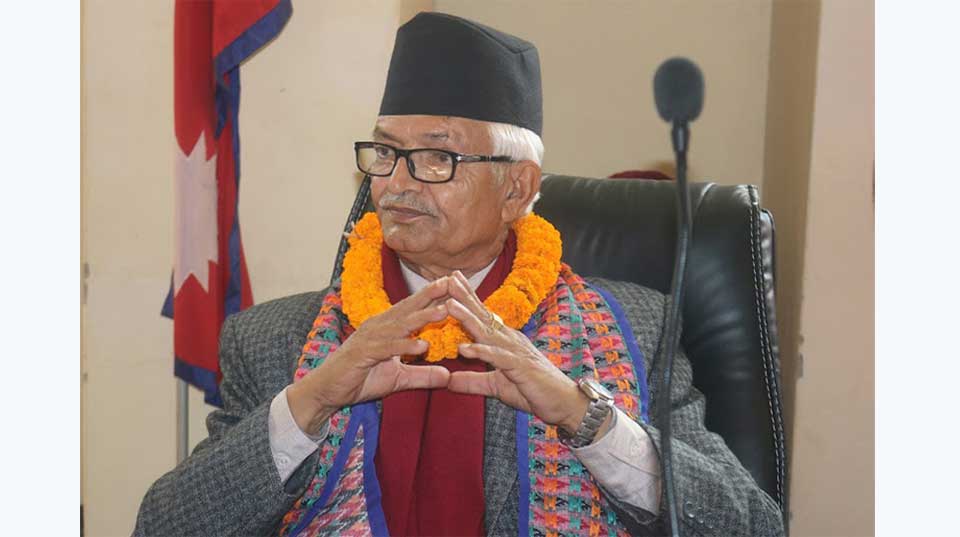
OR
Province 3 to be named very soon: CM Poudel
Published On: January 6, 2020 07:23 PM NPT By: Republica | @RepublicaNepal

HETAUDA, Jan 6: Chief Minister of Province 3 Dormani Poudel has said that the ongoing Fifth Provincial Assembly meeting would be a historical one.
He added that the meeting will finalize the name and the permanent capital of the province. It may be noted that the Nepal Communist Party (NCP) secretariat meeting has decided Hetauda as the permanent capital and Bagmati as the Name for the province.
Similarly, the main opposition Nepali Congress party leader Indra Baniya said that the process of deciding the provincial capital and name by NCP secretariat meeting was wrong in principle although it was good to them.
The issue would be decided by the two-third majority in the Provincial Assembly (PA).
The PA will again meet at 3:00 pm on January 8.
You May Like This

Hetauda to be declared permanent capital of Province 3 in two days: CM Poudel
HETAUDA, Jan 10: Chief Minister of Province 3 Dormani Poudel said that the Province would get its permanent name and... Read More...

Mysterious disease killing dogs in Norway
HELSINKI, Sept 8: Norwegian authorities haven’t been able to detect the cause behind an unexplained disease that is estimated to... Read More...

Chief Minister Paudel under fire for failing to implement budget
MAKWANPUR, March 7: The provincial assembly members of Province 3 have accused Chief Minister Dormani Paudel and the government of... Read More...











Just In
- Challenges Confronting the New Coalition
- NRB introduces cautiously flexible measures to address ongoing slowdown in various economic sectors
- Forced Covid-19 cremations: is it too late for redemption?
- NRB to provide collateral-free loans to foreign employment seekers
- NEB to publish Grade 12 results next week
- Body handover begins; Relatives remain dissatisfied with insurance, compensation amount
- NC defers its plan to join Koshi govt
- NRB to review microfinance loan interest rate







Leave A Comment